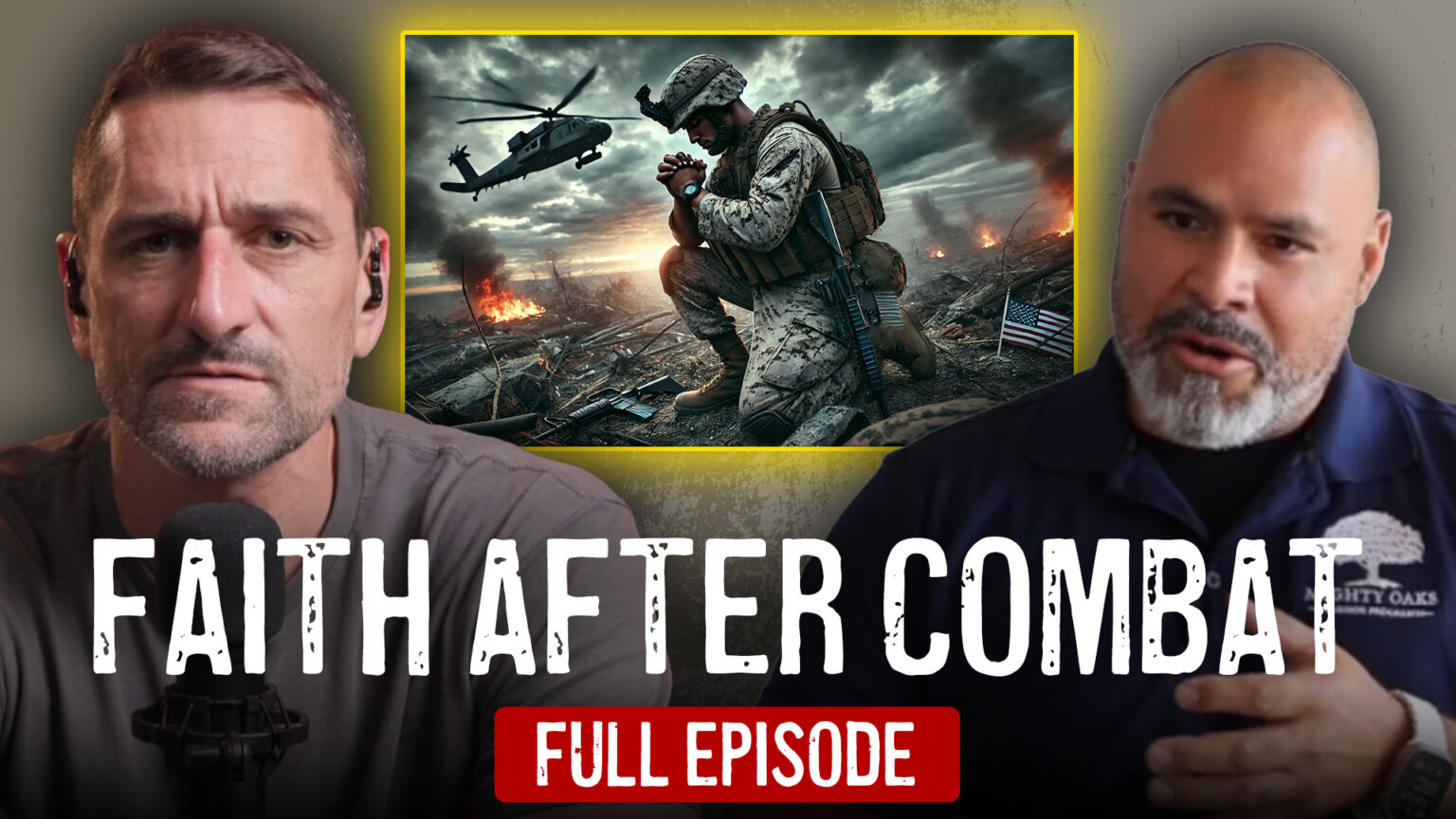In a recent episode of the March or Die show, host Jeremy Stalnecker spoke with Saul Villanueva, a former Marine and law enforcement officer, about his incredible journey through trauma, recovery, and faith. While Saul’s story is deeply personal, it offers valuable lessons that can help anyone facing their own struggles. Here are some key takeaways from Saul’s experience that can offer hope and guidance to those seeking healing and purpose in life.
1. Recognize When You’re Still Fighting the War
One of the turning points in Saul’s journey came when his cousin pointed out that while Saul had left the battlefields of Afghanistan, the war was still raging inside him. For veterans, first responders, or anyone who has experienced trauma, the physical distance from the event doesn’t always mean you’ve left the battle behind. Often, we carry the weight of those experiences with us, impacting our lives in ways we don’t fully understand.
Takeaway: Reflect on your own experiences and be honest about whether you’re still “fighting” in some way. Recognizing this is the first step toward healing. If you feel like you’re stuck in survival mode, it might be time to seek help.
2. Understand the Importance of Community Support
Throughout Saul’s journey, there were moments when he fell back into old patterns, but each time, key people in his life stepped in to support him. Whether it was his football coach in high school or fellow officers and friends during his time in law enforcement, having a community of people who care made all the difference.
Takeaway: Healing from trauma isn’t something you should do alone. Surround yourself with people who can support you, hold you accountable, and encourage you to move forward. Whether it’s friends, family, or a community group, find people who can walk alongside you in your journey.
3. Seek Spiritual Resilience
A pivotal moment in Saul’s healing came when he began to understand God’s sovereignty. Before this, Saul carried the weight of every traumatic experience, feeling responsible for outcomes that were beyond his control. Learning to release that burden to God was a critical step in his recovery.
Takeaway: Whether through faith or another spiritual practice, finding a sense of purpose and surrendering control can bring immense relief from the mental and emotional burdens of trauma. Understanding that some things are beyond your control allows you to focus on what you can manage—your own actions, reactions, and healing.
4. Embrace Discomfort for Growth
Saul initially resisted attending the Mighty Oaks program, afraid it would be a superficial “feel-good” experience. But when he committed to staying, despite his hesitation, it became the catalyst for profound change in his life. His willingness to be uncomfortable and honest with himself led to a transformation he didn’t think was possible.
Takeaway: Sometimes, the things we resist most are what we need the most. Don’t be afraid to step out of your comfort zone and face the hard truths about yourself. Growth often comes from confronting discomfort head-on.
5. Understand the Nature of Sin and the World’s Brokenness
A key insight Saul gained during his healing process was a deeper understanding of sin and the brokenness of the world. In law enforcement, he witnessed the worst of humanity on a daily basis. This constant exposure to sin and suffering left him angry and bitter. However, by understanding the nature of sin and the brokenness of the world through a biblical lens, he was able to have compassion for others and find peace.
Takeaway: We live in an imperfect world, and everyone—including ourselves—struggles with brokenness in different ways. Recognizing this can help you move from anger and bitterness to empathy and compassion. It doesn’t mean excusing harmful behavior, but it does allow you to respond to it from a place of grace rather than hate.
6. Take Responsibility for What You Can Control
Saul learned that while he couldn’t control the outcomes of the traumatic situations he encountered, he was responsible for how he responded to them. This realization helped him let go of guilt and focus on his own growth and healing.
Takeaway: While we can’t control every situation we face, we are responsible for our responses. Take ownership of your healing process by focusing on what you can control: your thoughts, actions, and attitudes.
7. Never Stop Seeking Help and Guidance
Even after attending the Mighty Oaks program, Saul continued to seek discipleship and mentorship. He met regularly with pastors who helped him navigate his questions about faith, trauma, and life’s deeper meaning. This ongoing pursuit of growth and understanding was key to his long-term recovery.
Takeaway: Healing is an ongoing process. Don’t stop seeking help, whether through therapy, counseling, faith communities, or trusted mentors. Keep asking the hard questions, and don’t be afraid to seek answers from others.
Final Thoughts: The Power of Faith and Purpose
Saul’s journey illustrates the power of faith in the healing process. Understanding God’s sovereignty, sin, and grace gave him the tools to face his trauma, release guilt, and find purpose. While everyone’s journey is different, these same principles can be applied to anyone facing struggles or searching for healing.
If you’re a veteran, first responder, or someone seeking healing from trauma, consider looking into the resources offered by organizations like the Mighty Oaks Foundation. The support, community, and spiritual growth available through these programs can be life-changing, just as they were for Saul.
For more information about the Mighty Oaks Foundation and their free programs for veterans, service members, first responders, and their families, visit Mighty Oaks Programs. Remember, you’re not alone—there’s help, hope, and a path forward waiting for you.
To watch the full episode: March or Die Full Episode
To Listen on Spotify: March or Die Full Episode
To Listen on Apple: March or Die Full Episode






